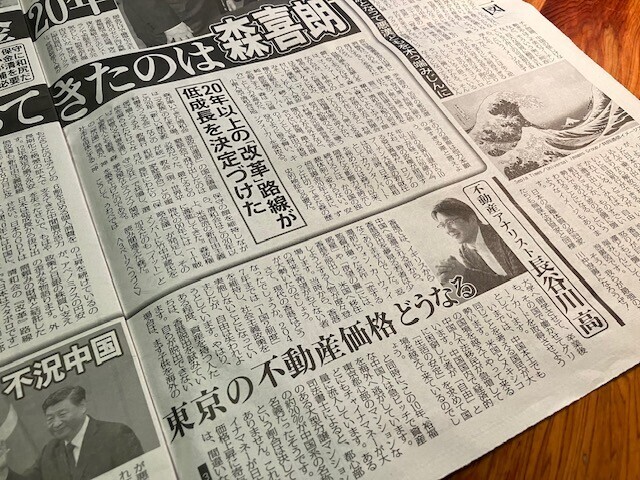(Continued from the other day)
Inflation has a very different impact on each asset class, depending on the level of inflation. If inflation is at today's level, the impact on real estate and stocks is not that great, as is evident from the current situation in Japan.
However, if inflation were to go a bit higher, to the level of the current U.S. inflation rate, real estate would be greatly affected.
This is because interest rates will rise along with inflation.
How long will it take for this inflation in Japan to subside?
In a sense, no one can predict, but it is possible to prepare for the future.
If we assume that something of the level of hyperinflation that occurred in Germany after World War I were to occur, the results would be horrific.
At that time, the value of the mark fell by up to one trillionth.
Farmers would not share their crops even if they had a mountain of mark bills, and it is said that they traded one ground piano for a bag of potatoes.
As a result, there was a food crisis among the general public, and many people went bankrupt financially.
At this point, owning real estate is no longer useful in terms of earning a living.
There is still a case of a foreign student from the U.S. who bought a house in a prime location in Berlin with the dollars he brought from his home country.
In addition, the stock prices of the leading German companies at the same time, such as Porsche and Mercedes, fell to one-twentieth or one-thirtieth of their current prices.
This is a natural consequence of the collapse of the domestic economy.
The German example may indeed be an extreme case.
However, if inflation continues to rise in the future, holding currency, stocks, and real estate only in one's own country is undoubtedly risky.
It certainly seems important to diversify one's assets within and outside the country. Even if you build a portfolio of assets, it is necessary to diversify not only by type, but also by region and by country.
I myself would like to prepare for the worst of the worst and somehow secure my farmland.
The following photos show harvesting on a farm owned by a classmate of mine from high school.
Today, I would like to have some farmland, even if it is only a few hundred square meters, in preparation for a black swan.

Takashi Hasegawa
President of Hasegawa Real Estate and Economy, Inc.
↓We are available for consultation on rental management, vacancy problems, real estate investment, and real estate problems↓.
長谷川不動産経済社
